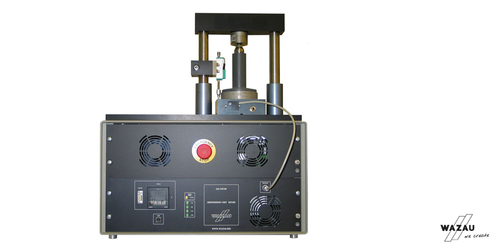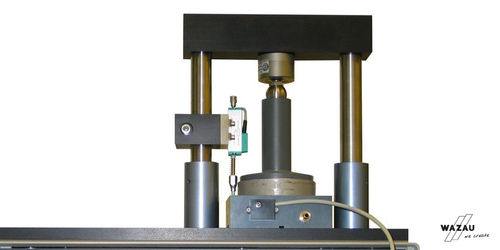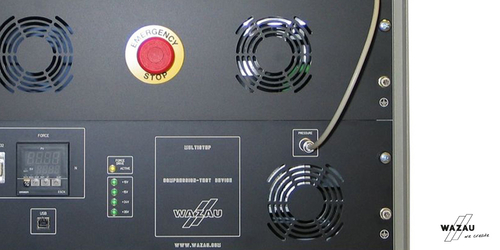Multi-step device
Characteristics
- Determining the settlement behavior and pressure changes in liquid soil samples which are compacted in a defined way.
The multistep compression-test device basically consists of three components. The mechanics is made up by a pillar-design which transfers the compressive force to the soil sample via a spindle. The electronics consist of the data preparation, controlling and regulating the sensors and the motor. The computer controls the process and processes the measured data. The compressive force is initiated by a stepper motor. The device can be moved with a maximum straight line velocity of 50 mm/min in lift operation for coupling in or coupling out of the compressive force. The speed when applying the compressive force can be between 0.1-2.5 mm/min. The device can use samples of Ø 100mm and apply a force from 10 kPa to 800 kPa. The command signal for the control system is a force sensor with a measuring range of 10 kN. The settlement of the soil sample is detected by a potentiometric displacement sensor. The tensiometer is connected to a pressure sensor which registers the actual water tension during the measuring. The different pressure levels with the according load time and speed can be set in the software. The software allows exporting the measured data in ASCII format and it also allows offset calibration of the sensors and controls the motor.
Technical specifications
| Geometry of specimen: | Soil samples |
| Testing standards: | - |
| Actuating elements: | Compression |
| Sensory functions: | Normal force / Distance (settlement) / pressure of liquid |
| Power input: | 230 VAC / 500 VA |
| Dimensions (testing device): | 500 x 500 x 500 mm (W x D x H) |
| Weight (testing device): | ca. 45 kg |



